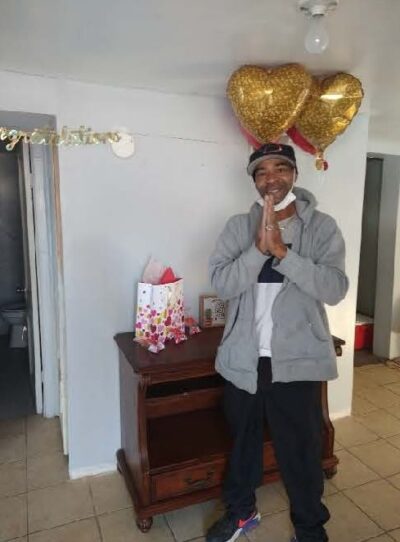The following is from Kathleen Webb, executive director of Children 1st in Wichita, Kansas.

The day Mr. B moved into his new home
We met Mr. B when he was living in his car after a house fire destroyed his family home. The house was inherited from his mother, and the fire threw the family into crisis. As a single father, he made the hard decision to separate his six children by moving them in with various family members. Newly homeless, Mr. B. worked contract jobs and lived in his car for almost a year during the COVID-19 pandemic. When COVID relief funding became available, Mr. B. was able to receive financial assistance to move into a modest home and welcome his children back. However, he still struggled to find work, and the transmission in his old car failed.
Mr. B.’s best friend was starting the Getting Ahead in a Just-Gettin’-By World classes and promised transportation if they both took the classes together to support each other. Through the classes, Children 1st was able to provide other assistance to the family, including emergency food boxes, utility bill assistance when needed, a freezer to stabilize food supply into the home, and contract work. A Children 1st donor heard about Mr. B’s journey to self-reliance and bought him an old but reliable car.
Shortly after graduation from Getting Ahead, Mr. B interviewed and was successfully offered a job with Spirit AeroSystems, a leading aircraft manufacturer in Wichita, Kansas, with a starting wage of $20.50 per hour!!!
Getting Ahead classes have prepared Mr. B to have the assets necessary for succeeding in the middle class world of work.
Mr. B is now getting ahead, and so is his family.
The aha! Process Getting Ahead program engages investigators (participants) in exploring the realities of poverty in their communities and how those realities impact them. They also explore the causes of poverty, the “hidden rules” of economic class, and ways to develop resources and build stable lives. Getting Ahead graduates build relationships across class lines and often join the decision-making tables in their communities.








